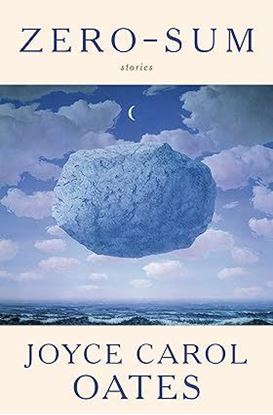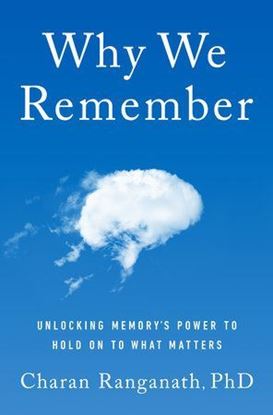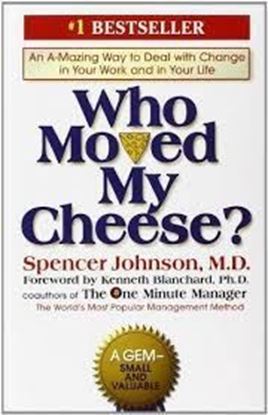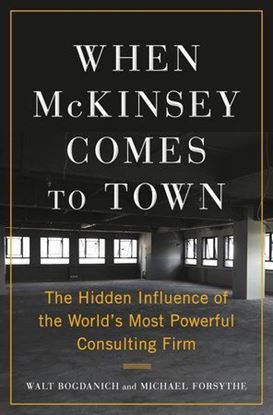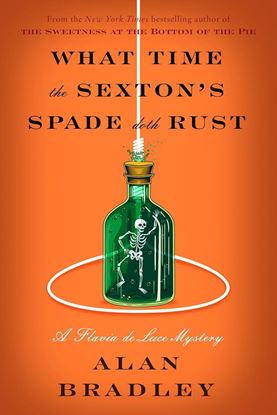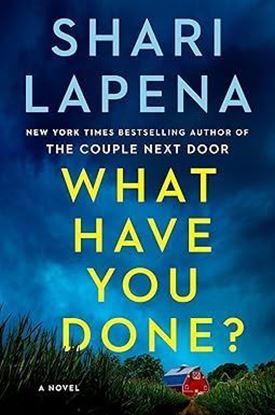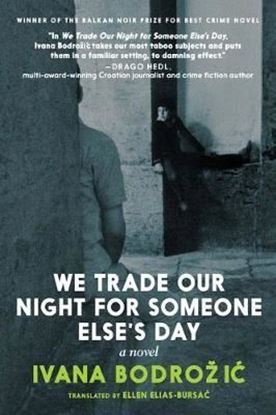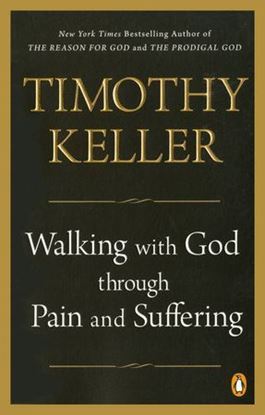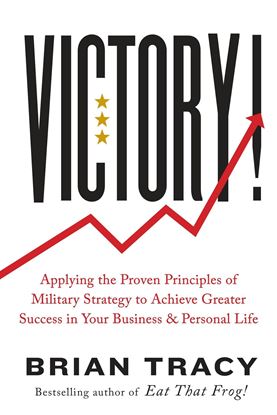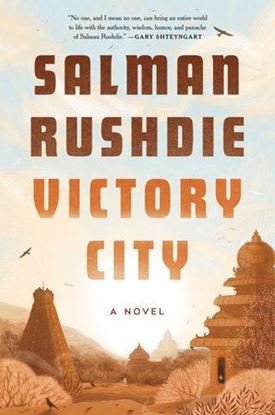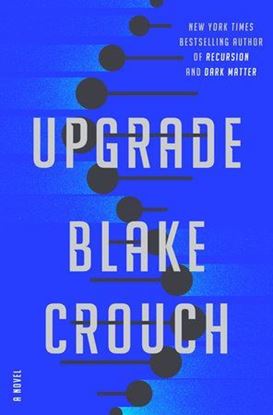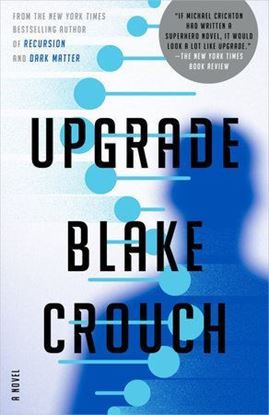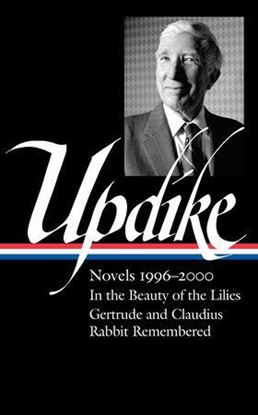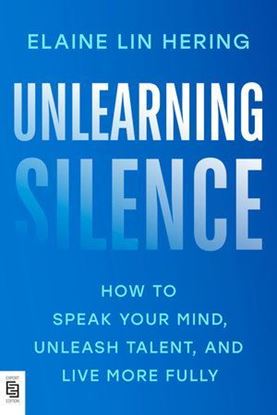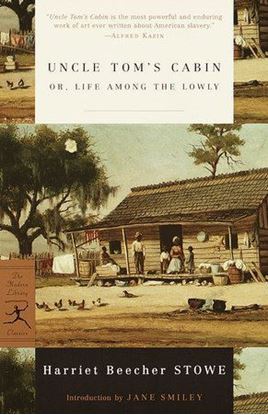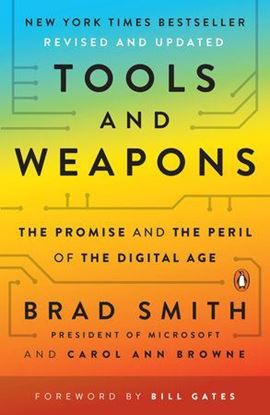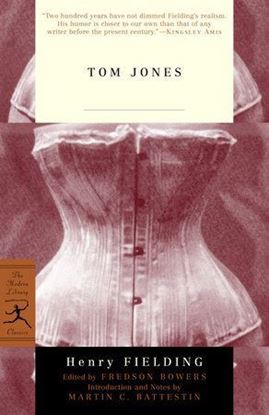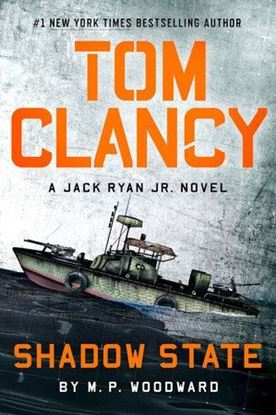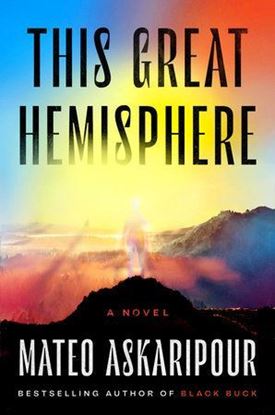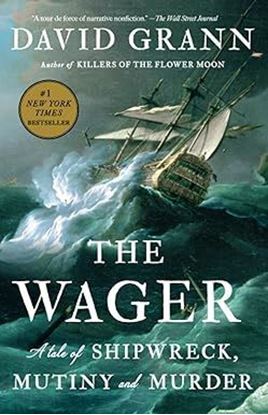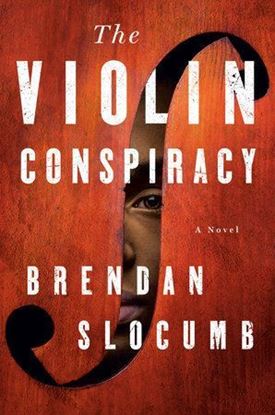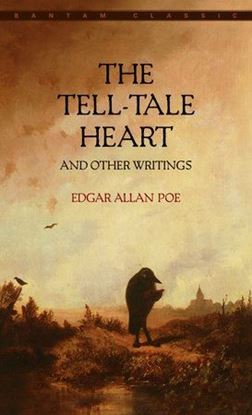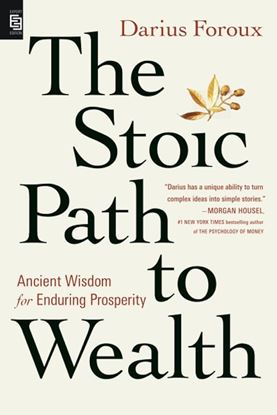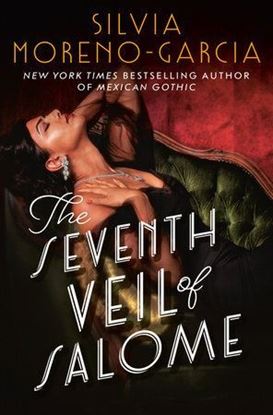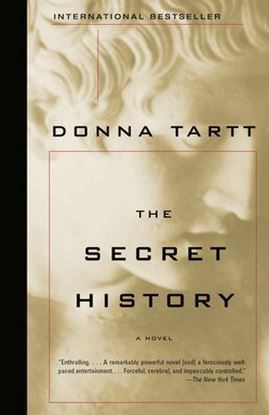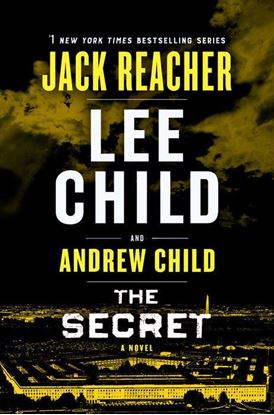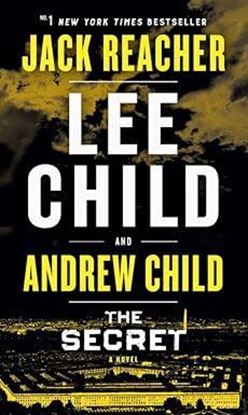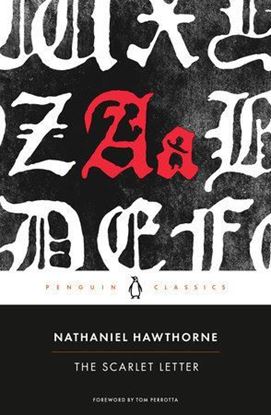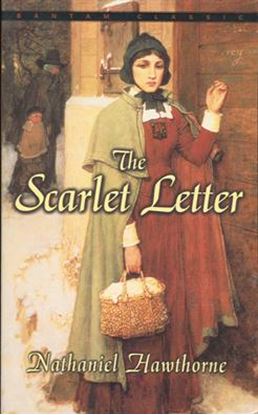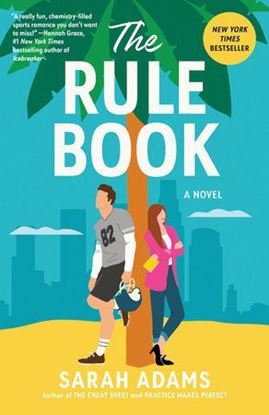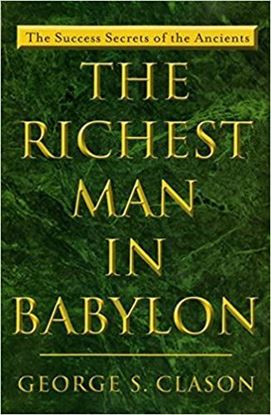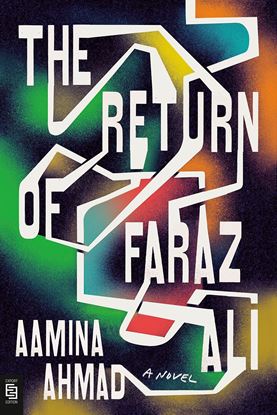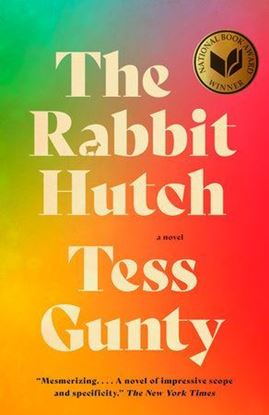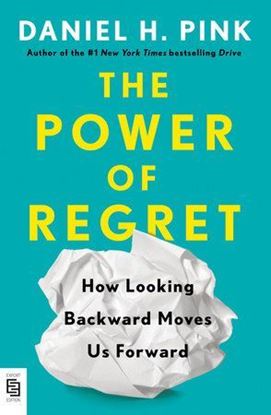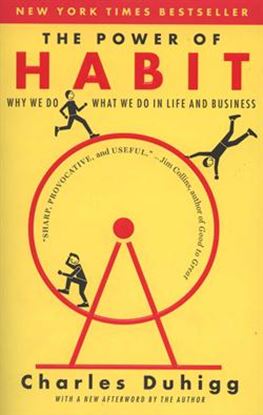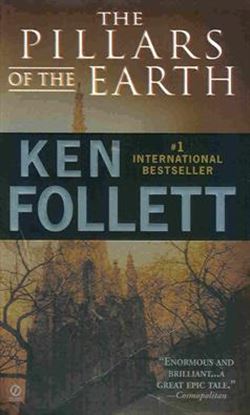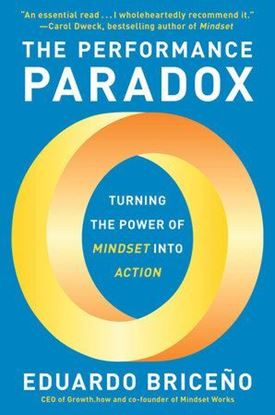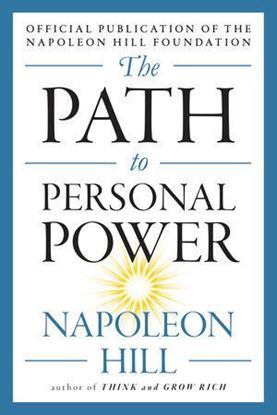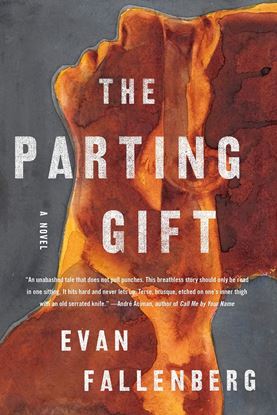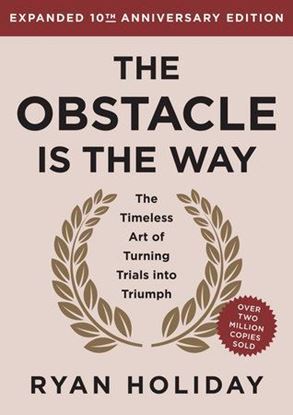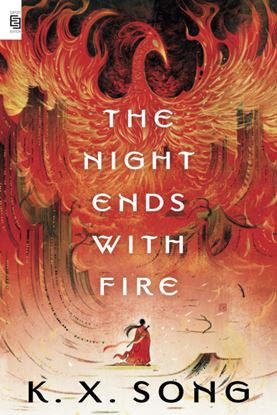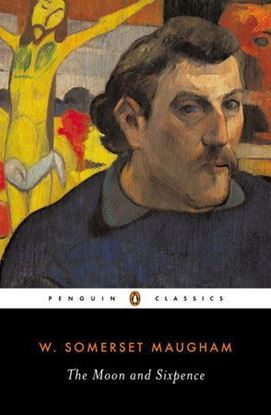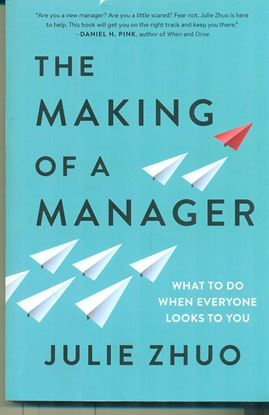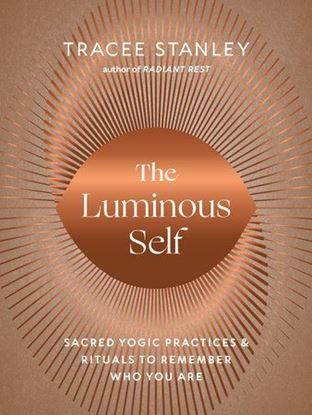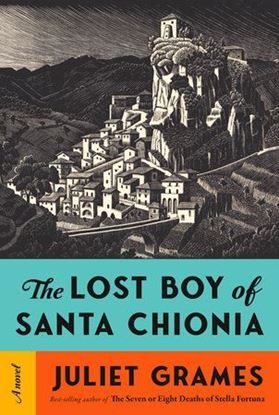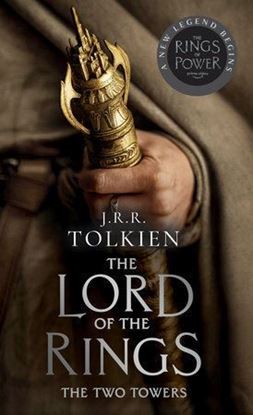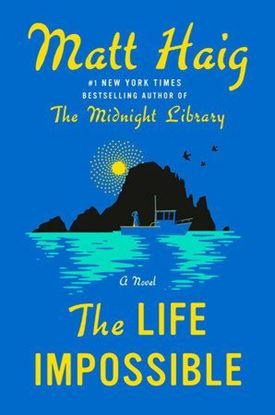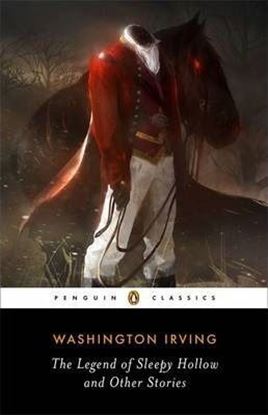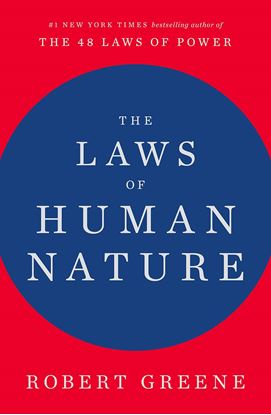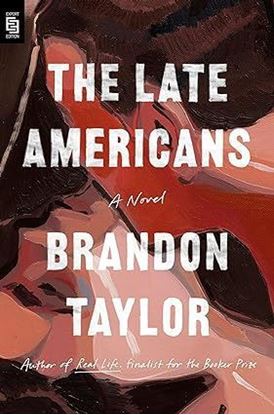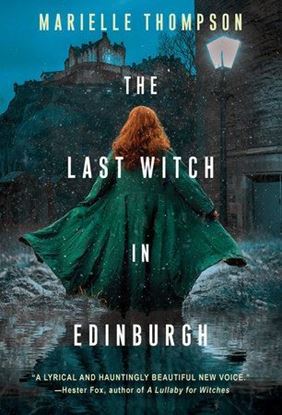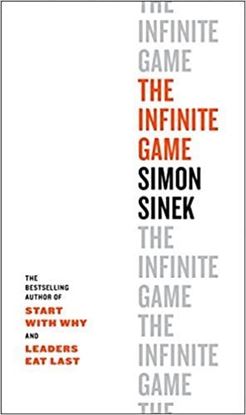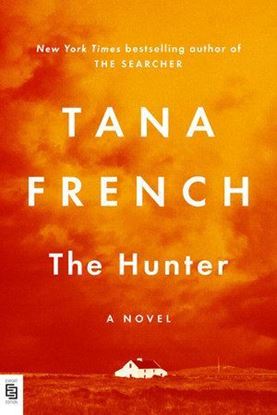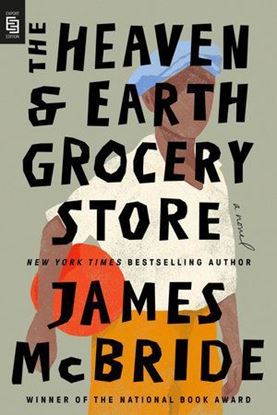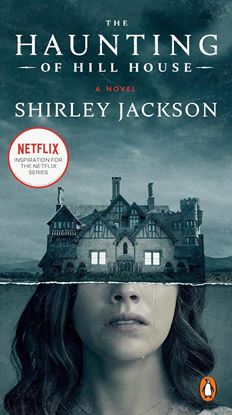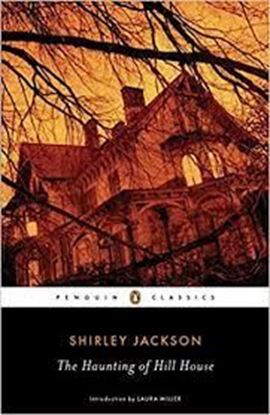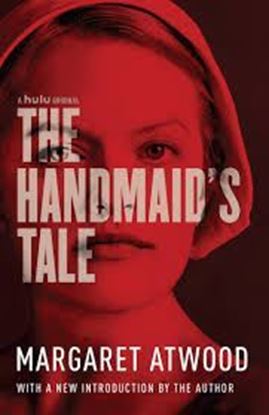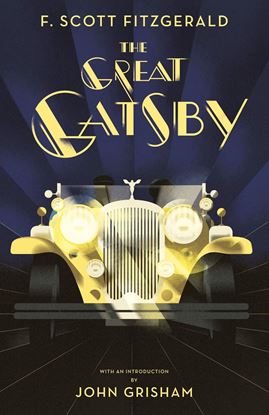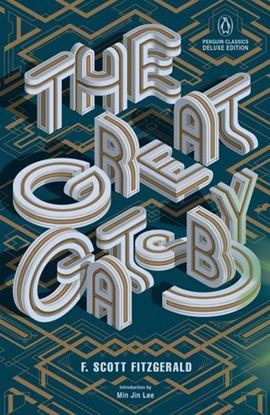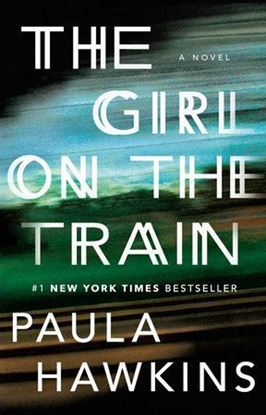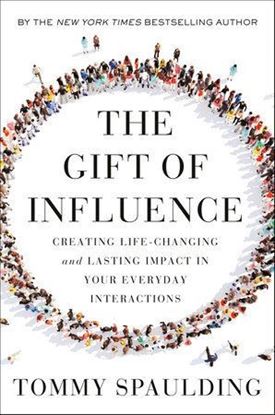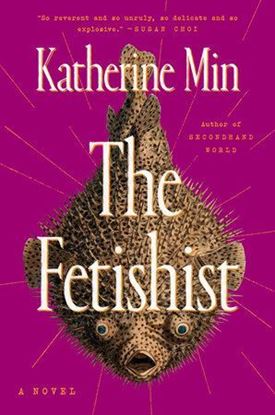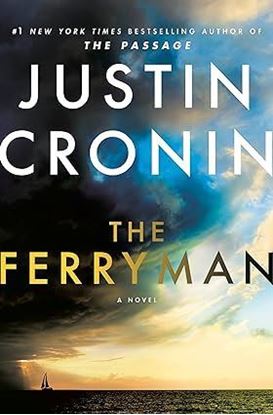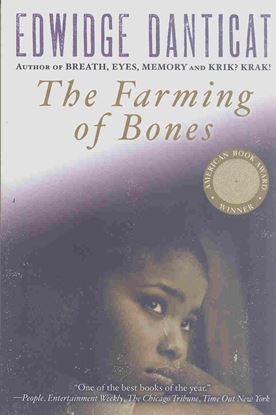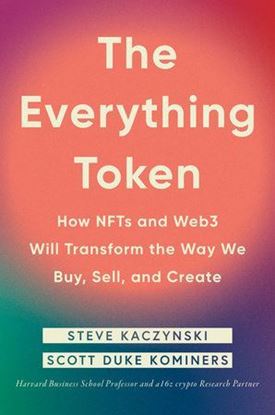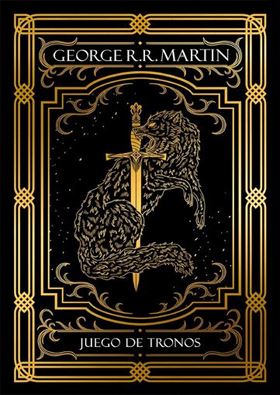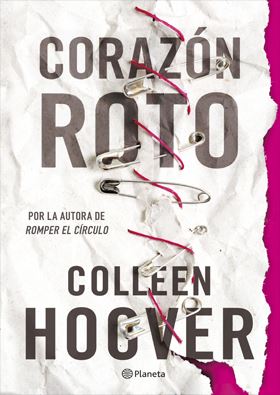

ZERO SUM
A brilliant young philosophy student bent on seducing her famous philosopher-mentor finds herself outmaneuvered; diabolically clever high school girls wreak a particularly apt sort of vengeance on sexual predators in their community; a woman stalked by a would-be killer may be confiding in the wrong former lover; a young woman is morbidly obsessed by her unfamiliar new role as “mother.” In the collection’s longest story, a much-praised cutting-edge writer cruelly experiments with “drafts” of his own suicide.
In these powerfully wrought stories that hold a mirror up to our time, Joyce Carol Oates has created a world of erotic obsession, thwarted idealism, and ever-shifting identities. Provocative and stunning, Zero-Sum reinforces Oates’s standing as a literary treasure and an artist of the mysterious interior life.
995
YOU BELONG HERE
In a world overcrowded with labels, don’t allow your identity to be defined by other people. Learn how to take back your power, choose to feed the aspects of your identity that serve you, and let go of those that don’t.
Everyone feels like an outsider at some point in their life—when we walk into a room and think to ourselves, “I don’t belong here.” To avoid these feelings of exclusion, many of us hide our authentic selves and allow others to define our identity.
You Belong Here offers a new framework that allows each of us to define how we want to be seen, heard, and valued on our own terms so we feel a sense of belonging in any situation. Further, it serves as a launchpad for organizational leaders and culture builders to create safe spaces for individuals to show up as their authentic selves.
1,450
Y/N
It’s as if her life only began once Moon appeared in it. The desultory copywriting work, the boyfriend, and the want of anything not-Moon quickly fall away when she beholds the idol in concert, where Moon dances as if his movements are creating their own gravitational field; on livestreams, as fans from around the world comment in dozens of languages; even on skincare products endorsed by the wildly popular Korean boyband, of which Moon is the youngest, most luminous member. Seized by ineffable desire, our unnamed narrator begins writing Y/N fanfic—in which you, the reader, insert [Your/Name] and play out an intimate relationship with the unattainable star.
Surreal, hilarious, and shrewdly poignant, Y/N is a provocative literary debut about the universal longing for transcendence and the tragic struggle to assert one’s singular story amidst the amnesiac effects of globalization. Esther Yi’s prose unsettles the boundary between high and mass art, exploding our expectations of a novel about “identity” and offering in its place a sui generis picture of the loneliness that afflicts modern life.
1,250
WUTHERING HEIGHTS
There are few more convincing, less sentimental accounts of passionate love than Wuthering Heights. This is the story of the savage, tormented foundling Heathcliff, who falls wildly in love with Catherine Earnshaw, the daughter of his benefactor, and of the violence and misery that result from their thwarted longing for each other.
850
WORTHY OPPONENTS
Spencer Brooke always knew she was destined to be CEO of her grandfather’s business—the most respected and luxurious department store in New York City. Brooke’s has been at the center of every happy memory she has, but it hasn’t been an easy journey. Seven years after her father’s death, her life is very different from the days when she walked through the store with her grandfather as a young girl. She may be the owner of Brooke’s, but she’s also now a divorced single mother of twin boys. And with the ever-evolving landscape of the fashion industry comes new challenges for Spencer and the legacy she’s inherited.
Mike Weston is known for making enormous profits by transforming small businesses into bigger, more successful ones. With his marriage at a breaking point and his children grown up, investing is where he thrives—where he can build something greater. And Brooke’s feels like the perfect opportunity. Yet the firm’s beautiful and savvy CEO turns down the offer before they even meet.
Spencer has no interest in outside investors meddling in her family business; her grandfather never saw the need for them, and neither does she. She refuses to be tempted by Mike’s offer, despite her big dreams of expanding the store. But when bad luck strikes, suddenly she is backed into a corner.
In Worthy Opponents, Danielle Steel crafts a thrilling story about a powerful woman—and her equally formidable opponent.
995
WORKING TO RESTORE
Political upheaval and social turmoil have peeled back the glitzy layers of capitalism to reveal an uncomfortable truth: historically, businesses have sourced materials from remote corners of the globe and moved millions of people and tons of cargo around the clock—all in the name of profit. Yet many of today’s startups are rewriting the rules of business: how it’s done, by whom, and, most importantly, for what purpose. Journalist Esha Chhabra draws on her decades of reporting to explore not only the “feel good, do good” factors of these restorative enterprises but also the nuanced realities and promise of regenerative business operations.
1,450
WHY WE REMEMBER (MR EXP)
A new understanding of memory is emerging from the latest scientific research. In Why We Remember, pioneering neuroscientist and psychologist Charan Ranganath radically reframes the way we think about the everyday act of remembering. Combining accessible language with cutting-edge research, he reveals the surprising ways our brains record the past and how we use that information to understand who we are in the present, and to imagine and plan for the future.
Memory, Dr. Ranganath shows, is a highly transformative force that shapes how we experience the world in often invisible and sometimes destructive ways. Knowing this can help us with daily remembering tasks, like finding our keys, and with the challenge of memory loss as we age. What’s more, when we work with the brain’s ability to learn and reinterpret past events, we can heal trauma, shed our biases, learn faster, and grow in self-awareness.
1,350
WHERE THE CRAWDADS SING
For years, rumors of the “Marsh Girl” have haunted Barkley Cove, a quiet town on the North Carolina coast. So in late 1969, when handsome Chase Andrews is found dead, the locals immediately suspect Kya Clark, the so-called Marsh Girl. But Kya is not what they say. Sensitive and intelligent, she has survived for years alone in the marsh that she calls home, finding friends in the gulls and lessons in the sand. Then the time comes when she yearns to be touched and loved. When two young men from town become intrigued by her wild beauty, Kya opens herself to a new life—until the unthinkable happens.
Where the Crawdads Sing is at once an exquisite ode to the natural world, a heartbreaking coming-of-age story, and a surprising tale of possible murder. Owens reminds us that we are forever shaped by the children we once were, and that we are all subject to the beautiful and violent secrets that nature keeps.
850
WHEN MCKINSEY COMES TO TOWN
McKinsey & Company is the most prestigious consulting company in the world, earning billions of dollars in fees from major corporations and governments who turn to it to maximize their profits and enhance efficiency. McKinsey's vaunted statement of values asserts that its role is to make the world a better place, and its reputation for excellence and discretion attracts top talent from universities around the world. But what does it actually do?
In When McKinsey Comes to Town, two prizewinning investigative journalists have written a portrait of the company sharply at odds with its public image. Often McKinsey's advice boils down to major cost-cutting, including layoffs and maintenance reductions, to drive up short-term profits, thereby boosting a company's stock price and the wealth of its executives who hire it, at the expense of workers and safety measures. McKinsey collects millions of dollars advising government agencies that also regulate McKinsey's corporate clients. And the firm frequently advises competitors in the same industries, but denies that this presents any conflict of interest.
In one telling example, McKinsey advised a Chinese engineering company allied with the communist government which constructed artificial islands, now used as staging grounds for the Chinese Navy—while at the same time taking tens of millions of dollars from the Pentagon, whose chief aim is to counter Chinese aggression.
Shielded by NDAs, McKinsey has escaped public scrutiny despite its role in advising tobacco and vaping companies, purveyors of opioids, repressive governments, and oil companies. McKinsey helped insurance companies' boost their profits by making it incredibly difficult for accident victims to get payments; worked its U.S. government contacts to let Wall Street firms evade scrutiny; enabled corruption in developing countries such as South Africa; undermined health-care programs in states across the country. And much more.
Bogdanich and Forsythe have penetrated the veil of secrecy surrounding McKinsey by conducting hundreds of interviews, obtaining tens of thousands of revelatory documents, and following rule #1 of investigative reporting: Follow the money.
When McKinsey Comes to Town is a landmark work of investigative reporting that amounts to a devastating portrait of a firm whose work has often made the world more unequal, more corrupt, and more dangerous.
1,100
WHAT'S IN A KISS?
This is not how Liv wanted to see Jake Glasswell for the first time in ten years. Once her high school rival and the prom date who humiliated her, now a successful TV personality, he’s more attractive than he has any right to be. And he’s her Lyft passenger.
Since the prom night kiss that never was, Liv’s life has not gone to plan. She deferred Julliard to be with her mom during a crisis, and now swears she’s happy as a recently furloughed drama teacher going on no-strings dates. This weekend she’s maid of honor to her best friend, Masha, and, of course, Jake is the best man. But when Liv glares into Jake’s eyes as Masha says, “I do,” the universe turns on its axis and Liv is suddenly living a version of her life where prom night was the beginning of her and Jake, not the end, and it turns out he’s the love of her life. The catch? Her mom and Masha hate her now. What’s in a kiss? Maybe everything.
850
WHAT TIME THE SEXTON'S SPADE DOTH RUST
Flavia de Luce has taken on the mentorship of her odious moon-faced cousin Undine, who has come to live at Buckshaw following the death of her mother. Undine’s main talent, aside from cultivating disgusting habits, seems to be raising Flavia’s hackles, although in her best moments she shows potential for trespassing, trickery, and other assorted mayhem.
When Major Greyleigh, a local recluse and former hangman, is found dead after a breakfast of poisonous mushrooms, suspicion falls on the de Luce family’s longtime cook, Mrs. Mullet. After all, wasn’t it she who’d picked the mushrooms, cooked the omelet, and served it to Greyleigh moments before his death? “I have to admit,” says Flavia, an expert in the chemical nature of poisons, “that I’d been praying to God for a jolly good old-fashioned mushroom poisoning. Not that I wanted anyone to die, but why give a girl a gift such as mine without giving her the opportunity to use it?”
1,500
WHAT HAVE YOU DONE?
Nothing ever happens in sleepy little Fairhill, Vermont. But this morning that will change. And one innocent question could be deadly. What have you done?
The teenagers get their kicks telling ghost stories in the old graveyard. The parents trust their kids will arrive home safe from school. Everyone knows everyone. Curtains rarely twitch. Front doors are left unlocked.
But Diana Brewer isn’t lying safely in her bed where she belongs. Instead she lies in a hayfield, circled by vultures, discovered by a local farmer.
How quickly a girl becomes a ghost. How quickly a town of friendly, familiar faces becomes a town of suspects, a place of fear and paranoia.
Someone in Fairhill did this. Everyone wants answers.
1,250
WE TRADE OUR NIGHT FOR SOMEONE ELSE'S DA
The city of Vukovar, situated on Croatia's easternmost periphery, across the Danube River from Serbia, was the site of some of the worst violence in the wars that rocked ex-Yugoslavia in the early '90s. It is referred to only as the city throughout this taut political thriller from one of Europe's most celebrated young writers. In this city without a name, fences in schoolyards separate the children of Serbs from those of Croats, and city leaders still fight to free themselves from violent crimes they committed--or permitted--during the war a generation ago. Now, it is left to a new generation--the children, now grown up, to extricate themselves from this tragic place, innocents who are nonetheless connected in different ways to the crimes of the past.
Nora is a journalist assigned to do a puff piece on the perpetrator of a crime of passion--a Croatian high school teacher who fell in love with one of her students, a Serb, and is now in prison for having murdered her husband. But Nora herself is the daughter of a man who was murdered years earlier under mysterious circumstances. And she wants, if not to avenge her father, at least to bring to justice whoever committed the crime. There's a hothouse intensity to this extraordinary noir page-turner because of how closely the author sets the novel within the historical record. This city is unnamed, the story is fictional, so it can show us what actually happened there.
750
WALKING WITH GOD THROUGH PAIN AND SUFFE
The question of why God would allow pain and suffering in the world has vexed believers and nonbelievers for millennia. Timothy Keller, whose books have sold millions of copies to both religious and secular readers, takes on this enduring issue and shows that there is meaning and reason behind our pain and suffering, making a forceful and ground-breaking case that this essential part of the human experience can be overcome only by understanding our relationship with God.
As the pastor of Redeemer Presbyterian Church in Manhattan, Timothy Keller is known for his unique insights into religion and culture. Keller's series of books has guided countless readers in their spiritual journeys. Walking with God through Pain and Suffering uses biblical wisdom and personal stories of overcoming adversity to bring a much-needed, fresh viewpoint to this important issue.
850
VICTORY!
By bestselling author Brian Tracy, a revised and updated edition of this indispensable field guide to using military strategies to win in business and life.
The modern world can be a battleground, but key strategies that have helped history’s great leaders triumph in military campaigns can also be used to achieve business and personal success. Brian Tracy is a leading authority on success and achievement, authoring bestsellers including Eat That Frog!, and raising millions toward advancement with his guidance. In this fully revised and updated edition of a classic, Tracy presents 12 core principles of successful military commanders and how to apply them in almost any situation and emerge victorious, including proven methods to:
· Concentrate your strengths in the most effective way to reach your goals
· Gather game-changing intelligence to determine the best approach
· Decide when to go on the offensive vs. cover your bases
· Exploit the element of surprise for maximum benefit
Packed with Tracy’s transformative advice, Victory! arms readers with powerful skills and a practical road map to unlock their potential for greatness in business and in life.
995
VICTORY CITY
In the wake of an unimportant battle between two long-forgotten kingdoms in fourteenth-century southern India, a nine-year-old girl has a divine encounter that will change the course of history. After witnessing the death of her mother, the grief-stricken Pampa Kampana becomes a vessel for a goddess, who begins to speak out of the girl’s mouth. Granting her powers beyond Pampa Kampana’s comprehension, the goddess tells her that she will be instrumental in the rise of a great city called Bisnaga—“victory city”—the wonder of the world.
Over the next 250 years, Pampa Kampana’s life becomes deeply interwoven with Bisnaga’s, from its literal sowing from a bag of magic seeds to its tragic ruination in the most human of ways: the hubris of those in power. Whispering Bisnaga and its citizens into existence, Pampa Kampana attempts to make good on the task that the goddess set for her: to give women equal agency in a patriarchal world. But all stories have a way of getting away from their creator, and Bisnaga is no exception. As years pass, rulers come and go, battles are won and lost, and allegiances shift, the very fabric of Bisnaga becomes an ever more complex tapestry—with Pampa Kampana at its center.
800
VELVET WAS THE NIGHT
Mexico in the 1970s is a dangerous country, even for Maite, a secretary who spends her life seeking the romance found in cheap comic books and ignoring the activists protesting around the city. When her next-door neighbor, the beautiful art student Leonora, disappears under suspicious circumstances, Maite finds herself searching for the missing woman—and journeying deeper into Leonora’s secret life of student radicals and dissidents.
Mexico in the 1970s is a politically fraught land, even for Elvis, a goon with a passion for rock ’n’ roll who knows more about kidney-smashing than intrigue. When Elvis is assigned to find Leonora, he begins a blood-soaked search for the woman—and his soul.
Swirling in parallel trajectories, Maite and Elvis attempt to discover the truth behind Leonora’s disappearance, encountering hitmen, government agents, and Russian spies. Because Mexico in the 1970s is a noir, where life is cheap and the price of truth is high.
600
VAGABONDS!
Blending unvarnished realism with myth and fantasy, Vagabonds! is a vital work of imagination that takes us deep inside the hearts, minds, and bodies of a people in duress—and in triumph.
900
UPGRADE
“You are the next step in human evolution.”
At first, Logan Ramsay isn’t sure if anything’s different. He just feels a little . . . sharper. Better able to concentrate. Better at multitasking. Reading a bit faster, memorizing better, needing less sleep.
But before long, he can’t deny it: Something’s happening to his brain. To his body. He’s starting to see the world, and those around him—even those he loves most—in whole new ways.
The truth is, Logan’s genome has been hacked. And there’s a reason he’s been targeted for this upgrade. A reason that goes back decades to the darkest part of his past, and a horrific family legacy.
Worse still, what’s happening to him is just the first step in a much larger plan, one that will inflict the same changes on humanity at large—at a terrifying cost.
Because of his new abilities, Logan’s the one person in the world capable of stopping what’s been set in motion. But to have a chance at winning this war, he’ll have to become something other than himself. Maybe even something other than human.
And even as he’s fighting, he can’t help wondering: what if humanity’s only hope for a future really does lie in engineering our own evolution?
900
UPGRADE
“You are the next step in human evolution.”
At first, Logan Ramsay isn’t sure if anything’s different. He just feels a little . . . sharper. Better able to concentrate. Better at multitasking. Reading a bit faster, memorizing better, needing less sleep.
But before long, he can’t deny it: Something’s happening to his brain. To his body. He’s starting to see the world, and those around him—even those he loves most—in whole new ways.
The truth is, Logan’s genome has been hacked. And there’s a reason he’s been targeted for this upgrade. A reason that goes back decades to the darkest part of his past, and a horrific family legacy.
Worse still, what’s happening to him is just the first step in a much larger plan, one that will inflict the same changes on humanity at large—at a terrifying cost.
Because of his new abilities, Logan’s the one person in the world capable of stopping what’s been set in motion. But to have a chance at winning this war, he’ll have to become something other than himself. Maybe even something other than human.
And even as he’s fighting, he can’t help wondering: what if humanity’s only hope for a future really does lie in engineering our own evolution?
Intimate in scale yet epic in scope, Upgrade is an intricately plotted, lightning-fast tale that charts one man’s thrilling transformation, even as it asks us to ponder the limits of our humanity—and our boundless potential.
800
UPDIKE: NOVELS 1996–2000
The capstone volume of the Library of America edition of John Updike’s novels contains some of the master stylist and social observer’s most ambitious works.
In the Beauty of the Lilies (1996) opens in 1910, when Clarence Wilmot, a Presbyterian minister in Paterson, NJ, experiences a devastating loss of faith. This moment of crisis sets in motion an eighty-year, multigenerational saga whose subject is nothing less than the American Century and modernity itself, seen through the fluctuating fortunes of a single representative family.
In Gertrude and Claudius, Updike boldly imagines the long backstory to the world’s most famous play, prompting readers to revisit and perhaps revise their judgments about Hamlet’s notorious uncle and mother. Drawing on the twelfth- and fifteenth century sources for Hamlet, but also inventing a new history for Claudius in his far-flung travels across medieval Europe, Updike creates a vivid and surprising origin story for the fabled rottenness in Shakespeare’s Denmark.
1,995
UNNATURAL HISTORY
Los Angeles is a city of stark contrast, the palaces of the affluent coexisting uneasily with the hellholes of the mad and the needy. That shadow world and the violence it breeds draw brilliant psychologist Dr. Alex Delaware and Detective Milo Sturgis into an unsettling case of altruism gone wrong.
On a superficially lovely morning, a woman shows up for work with her usual enthusiasm. She’s the newly hired personal assistant to a handsome, wealthy photographer and is ready to greet her boss with coffee and good cheer. Instead, she finds him slumped in bed, shot to death.
The victim had recently received rave media attention for his latest project: images of homeless people in their personal “dream” situations, elaborately costumed and enacting unfulfilled fantasies. There are some, however, who view the whole thing as nothing more than crass exploitation, citing token payments and the victim’s avoidance of any long-term relationships with his subjects.
Has disgruntlement blossomed into homicidal rage? Or do the roots of violence reach down to the victim’s family—a clan, sired by an elusive billionaire, that is bizarre in its own right?
Then new murders arise, and Alex and Milo begin peeling back layer after layer of intrigue and complexity, culminating in one of the deadliest threats they’ve ever faced.
995
UNLEARNING SILENCE
Having a seat at the table doesn’t mean that your voice is actually welcome. Knowing something is wrong doesn't mean it's easy to speak up. In fact, there are incentives for many of us to stay silent. Why speak up if you know that it won’t be received well, and in fact, often makes things worse?
In Unlearning Silence, Hering explores how we’ve learned to be silent, how we’ve benefited from silence, how we’ve silenced other people—and how we might choose another way. She teaches how to recognize and unlearn unconscious patterns so we can make more intentional choices about how we want to show up in at home and at work. Only by unlearning silence can we more fully unleash talent, speak our minds, and be more complete versions of ourselves… and help other people do the same.
With compassion, clarity, and understanding, Hering guides readers through real-life examples and offers a concrete road map for doing this vital and challenging work.
1,400
UNCLE TOM'S CABIN
When Uncle Tom’s Cabin was published in 1852, it became an international blockbuster, selling more than 300,000 copies in the United States alone in its first year. Progressive for her time, Harriet Beecher Stowe was one of the earliest writers to offer a shockingly realistic depiction of slavery. Her stirring indictment and portrait of human dignity in the most inhumane circumstances enlightened hundreds of thousands by revealing the human costs of slavery, which had until then been cloaked and justified by the racist misperceptions of the time. Langston Hughes called it "a moral battle cry," noting that "the love and warmth and humanity that went into its writing keep it alive a century later," and Tolstoy described it as "flowing from love of God and man."
800
TRUE BIZ
True biz? The students at the River Valley School for the Deaf just want to hook up, pass their history finals, and have politicians, doctors, and their parents stop telling them what to do with their bodies. This revelatory novel plunges readers into the halls of a residential school for the deaf, where they’ll meet Charlie, a rebellious transfer student who’s never met another deaf person before; Austin, the school’s golden boy, whose world is rocked when his baby sister is born hearing; and February, the hearing headmistress, a CODA (child of deaf adult(s)) who is fighting to keep her school open and her marriage intact, but might not be able to do both. As a series of crises both personal and political threaten to unravel each of them, Charlie, Austin, and February find their lives inextricable from one another—and changed forever.
800
TOOLS AND WEAPONS
Microsoft president Brad Smith operates by a simple core belief: When your technology changes the world, you bear a responsibility to help address the world you have helped create. In Tools and Weapons, Brad Smith and Carol Ann Browne bring us a captivating narrative from the top of Microsoft, as the company flies in the face of a tech sector long obsessed with disruption as an end in itself, and in doing so navigates some of the thorniest issues of our time—from privacy to cyberwar to the challenges for democracy, far and near.
1,250
TOM JONES
Tom, a foundling, is discovered one evening by the benevolent Squire Allworthy and his sister Bridget and brought up as a son in their household; when his sexual escapades and general misbehavior lead them to banish him, he sets out in search of both his fortune and his true identity. Amorous, high-spirited, and filled with what Fielding called “the glorious lust of doing good,” but with a tendency toward dissolution, Tom Jones is one of the first characters in English fiction whose human virtues and vices are realistically depicted. This edition is set from the text of the Wesleyan Edition of the Works of Henry Fielding.
1,100
TOM CLANCY SHADOW STATE
The vibrant economy of the new Vietnam is a shiny lure for Western capital. Companies are racing to uncover ideal opportunities. Not wanting to be left behind, Hendley Associates has sent their best analyst, Jack Ryan, Jr., to mine for investment gold. And he may have found some in a rare earth mining company—GeoTech.
But a trip with a Hendley colleague to the Highlands to observe the company’s operations takes a treacherous turn when their helicopter is shot down. Some things haven’t changed, and Vietnam is still the plaything of powerful neighbors. The Chinese are determined to keep Jack from finding the truth about what exactly is being processed at the isolated factory.
Now Jack is in a race for his life. He’s got to stay one step ahead of a pack of killers while supporting his wounded friend. He’ll get no help from the government, because in the jungle, it’s the shadow state that rules.
1,400
THIS GREAT HEMISPHERE
This Great Hemisphere is powerful, captivating novel about how far we’ll go to protect the ones we love. With the worldbuilding of N. K. Jemisin’s novels and blazing defiance of Naomi Alderman’s work, it is also a story about what happens when we resist the narratives others write about us.
Northwestern Hemisphere, 2529: an Earth on which half of people are now born literally invisible. Sweetmint, a young woman, is one of them and thus relegated to second-class citizenship. She has done everything right her entire life, from school to landing a highly sought-after apprenticeship. But all she has fought so hard to earn comes crashing down when she learns that her brother (whom she had presumed dead) is not only alive and well but also the primary suspect in a high-profile political murder.
1,650
THE YOUNG MAN
The Young Man is Annie Ernaux’s account of her passionate love affair with A., a man some 30 years younger, when she was in her fifties. The relationship pulls her back to memories of her own youth and at the same time leaves her feeling ageless, outside of time— together with a sense that she is living her life backwards.
Amidst talk of having a child together, she feels time running its course, and menopause approaching. The Young Man recalls Ernaux as the “scandalous girl” she once was, but is composed with the mastery and the self-assurance she has achieved across decades of writing. It was first published in France in 2022.
450
THE WORLD AFTER ALICE
When Morgan and Benji surprise their families with a wedding invitation to Maine, they’re aware the news of their clandestine relationship will come as a shock. Twelve years have passed since the stunning loss of sixteen-year-old Alice, Benji’s sister and Morgan’s best friend, and no one is quite the same. But the young couple decide to plunge headlong into matrimony, marking the first time their fractured families will reunite since Alice’s funeral.
As the arriving guests descend upon the tranquil coastal town, they bring with them not only skepticism about the impromptu nuptials but also deep-seated secrets and agendas of their own. Peter, Morgan’s father, may be trying to dissuade his daughter from saying “I do,” while Linnie, Benji’s mother, introduces a boyfriend who bears a tumultuous past of his own. Nick, Benji’s father, is scheming to secure a new job before his wife—formerly his mistress—discovers he’s lost his old one. Morgan, too, carries delicate secrets that threaten to jeopardize the happiness for which she has so longed. And as for Benji—well, he’s just trying to make sure the whole weekend doesn’t implode.
1,150
THE WOMAN IN THE CASTELLO
Rome, 1965: Aspiring actress Silvia Whitford arrives at Rome’s famed Cinecittà Studios from Los Angeles, ready for her big break and a taste of la dolce vita. Instead, she learns that the movie in which she was cast has been canceled. Desperate for money, Silvia has only one choice: seek out the Italian aunt she has never met.
Gabriella Conti lives in a crumbling castello on the edge of a volcanic lake. Silvia’s mother refuses to explain the rift that drove the sisters apart, but Silvia is fascinated by Gabriella, a once-famous actress who still radiates charisma. And the eerie castle inspires Silvia’s second chance when it becomes the location for a new horror movie, aptly named The Revenge of the Lake Witch and she lands a starring role.
Silvia immerses herself in the part of an ingenue tormented by the ghost of her beautiful, seductive ancestor. But when Gabriella abruptly vanishes, the movie’s make believe terrors seep into reality. No one else on set seems to share Silvia’s suspicions. Yet as she delves into Gabriella’s disappearance, she triggers a chain of events that illuminate dark secrets in the past and a growing menace in the present…
850
THE WIND KNOWS MY NAME (MM)
Vienna, 1938. Samuel Adler is five years old when his father disappears during Kristallnacht-the night his family loses everything. As her child's safety becomes ever harder to guarantee, Samuel's mother secures a spot for him on a Kindertransport train out of Nazi-occupied Austria to England. He boards alone, carrying nothing but a change of clothes and his violin. Arizona, 2019. Eight decades later, Anita Dìaz and her mother board another train, fleeing looming danger in El Salvador and seeking refuge in the United States. But their arrival coincides with the new family separation policy, and seven-year-old Anita finds herself alone at a camp in Nogales. She escapes her tenuous reality through her trips to Azabahar, a magical world of the imagination. Meanwhile, Selena Durán, a young social worker, enlists the help of a successful lawyer in hopes of tracking down Anita's mother. Intertwining past and present, The Wind Knows My Name tells the tale of these two unforgettable characters, both in search of family and home. It is both a testament to the sacrifices that parents make and a love letter to the children who survive the most unfathomable dangers-and never stop dreaming.
700
THE WHITE BOOK
While on a writer’s residency, a nameless narrator focuses on the color white to creatively channel her inner pain. Through lyrical, interconnected stories, she grapples with the tragedy that has haunted her family, attempting to make sense of her older sister’s death using the color white. From trying to imagine her mother’s first time producing breast milk to watching the snow fall and meditating on the impermanence of life, she weaves a poignant, heartfelt story of the omnipresence of grief and the ways we perceive the world around us.
1,350
THE WAGER
On 28th January 1742, a ramshackle vessel of patched-together wood and cloth washed up on the coast of Brazil. Inside were thirty emaciated men, barely alive, and they had an extraordinary tale to tell. They were survivors of His Majesty’s ship The Wager, a British vessel that had left England in 1740 on a secret mission during an imperial war with Spain. While chasing a Spanish treasure-filled galleon, The Wager was wrecked on a desolate island off the coast of Patagonia. The crew, marooned for months and facing starvation, built the flimsy craft and sailed for more than a hundred days, traversing 2,500 miles of storm-wracked seas. They were greeted as heroes.
Then, six months later, another, even more decrepit, craft landed on the coast of Chile. This boat contained just three castaways and they had a very different story to tell. The thirty sailors who landed in Brazil were not heroes – they were mutineers. The first group responded with counter-charges of their own, of a tyrannical and murderous captain and his henchmen. While stranded on the island the crew had fallen into anarchy, with warring factions fighting for dominion over the barren wilderness. As accusations of treachery and murder flew, the Admiralty convened a court martial to determine who was telling the truth. The stakes were life-and-death—for whomever the court found guilty could hang.
950
THE VOLCANO DAUGHTERS
El Salvador, 1923. Graciela, a young girl growing up on a volcano in a community of Indigenous women, is summoned to the capital, where she is claimed as an oracle for a rising dictator. There she meets Consuelo, the sister she has never known, who was stolen from their home before Graciela was born. The two spend years under the cruel El Gran Pendejo’s regime, unwillingly helping his reign of terror, until genocide strikes the community from which they hail. Each believing the other to be dead, they escape, fleeing across the globe, reinventing themselves until fate ultimately brings them back together in the most unlikely of ways…
Endlessly surprising, vividly imaginative, bursting with lush life, The Volcano Daughters charts a new history and mythology of El Salvador, fiercely bringing forth voices that have been calling out for generations.
1,250
THE TURN OF THE SCREW
In "The Turn of the Screw," one of the most famous ghost stories of all time, a
governess becomes obsessed with the belief that malevolent forces are stalking
the children in her care. It is accompanied here by several more of the very best of
Henry James's short stories, all exploring ghosts and the uncanny.
For more than seventy years, Penguin has been the leading publisher of classic literature in the English-speaking world. With more than 1,800 titles, Penguin Classics represents a global bookshelf of the best works throughout history and across genres and disciplines. Readers trust the series to provide authoritative texts enhanced by introductions and notes by distinguished scholars and contemporary authors, as well as up-to-date translations by award-winning translators.
1,700
THE TELL-TALE HEART AND OTHER WRITINGS
Edgar Allan Poe remains the unsurpassed master of works of mystery and madness in this outstanding collection of Poe's prose and poetry are sixteen of his finest tales, including "The Tell-Tale Heart", "The Murders in the Rue Morgue", "The Fall of the House of Usher," "The Pit and the Pendulum," "William Wilson," "The Black Cat," "The Cask of Amontillado," and "Eleonora". Here too is a major selection of what Poe characterized as the passion of his life, his poems - "The Raven," "Annabel Lee," Ulalume," "Lenore," "The Bells," and more, plus his glorious prose poem "Silence - A Fable" and only full-length novel, The Narrative of Arthur Gordon Pym.
450
THE STOIC PATH TO WEALTH
The Stoics understood that if you can control your reactions and manage your emotions, you can achieve success. The same principles apply to our financial lives today. The greatest investors approach the markets with discipline, emotional distance, and self-mastery—lessons that the Stoics have been teaching us for thousands of years.
1,450
THE SHARDS
Bret Easton Ellis’s masterful new novel is a story about the end of innocence, and the perilous passage from adolescence into adulthood, set in a vibrantly fictionalized Los Angeles in 1981 as a serial killer begins targeting teenagers throughout the city.
Seventeen-year-old Bret is a senior at the exclusive Buckley prep school when a new student arrives with a mysterious past. Robert Mallory is bright, handsome, charismatic, and shielding a secret from Bret and his friends even as he becomes a part of their tightly knit circle. Bret’s obsession with Mallory is equaled only by his increasingly unsettling preoccupation with the Trawler, a serial killer on the loose who seems to be drawing ever closer to Bret and his friends, taunting them—and Bret in particular—with grotesque threats and horrific, sharply local acts of violence. The coincidences are uncanny, but they are also filtered through the imagination of a teenager whose gifts for constructing narrative from the filaments of his own life are about to make him one of the most explosive literary sensations of his generation. Can he trust his friends—or his own mind—to make sense of the danger they appear to be in? Thwarted by the world and by his own innate desires, buffeted by unhealthy fixations, he spirals into paranoia and isolation as the relationship between the Trawler and Robert Mallory hurtles inexorably toward a collision.
900
THE SEVENTH VEIL OF SALOME
1950s Hollywood: Every actress wants to play Salome, the star-making role in a big-budget movie about the legendary woman whose story has inspired artists since ancient times.
So when the film’s mercurial director casts Vera Larios, an unknown Mexican ingenue, in the lead role, she quickly becomes the talk of the town. Vera also becomes an object of envy for Nancy Hartley, a bit player whose career has stalled and who will do anything to win the fame she believes she richly deserves.
Two actresses, both determined to make it to the top in Golden Age Hollywood—a city overflowing with gossip, scandal, and intrigue—make for a sizzling combination.
But this is the tale of three women, for it is also the story of the princess Salome herself, consumed with desire for the fiery prophet who foretells the doom of her stepfather, Herod: a woman torn between the decree of duty and the yearning of her heart.
Before the curtain comes down, there will be tears and tragedy aplenty in this sexy Technicolor saga.
995
THE SEVEN SPIRITUAL LAWS OF SUCCESS
This is a book you will cherish for a lifetime, for within its pages are the secrets to making all your dreams come true. Based on natural laws that govern all of creation, this book shatters the myth that success is the result of hard work, exacting plans, or driving ambition. Instead, Deepak Chopra offers a life-altering perspective on the attainment of success: When we understand our true nature and learn to live in harmony with natural law, a sense of well-being, good health, fulfilling relationships, and material abundance spring forth easily and effortlessly. Filled with timeless wisdom and practical steps you can apply right away, this pocketbook edition of Chopra's classic bestselling book makes it easy for you to read and refer to again and again. Carry it with you in your purse or your pocket, and in less than one hour, learn the seven powerful principles that can easily be applied to create success in all areas of your life.
650
THE SECRET HISTORY
Under the influence of a charismatic classics professor, a group of clever, eccentric misfits at a New England college discover a way of thought and life a world away from their banal contemporaries. But their search for the transcendent leads them down a dangerous path, beyond human constructs of morality.
850
THE SECRET
A string of mysterious deaths. A long-classified mission. A young MP with nothing to lose.
1992. All across the United States respectable, upstanding citizens are showing up dead. These deaths could be accidents, and they don’t appear to be connected—until a fatal fall from a high-floor window attracts some unexpected attention.
That attention comes from the secretary of defense. All of a sudden he wants an interagency task force to investigate. And he wants Jack Reacher as the army’s representative. If Reacher gets a result, great. If not, he’s a convenient fall guy.
But office politics isn’t Reacher’s thing. Three questions quickly emerge: Who’s with him, who’s against him, and will the justice he dispenses be the official kind . . . or his own kind?
1,300
THE SECRET
1992. Eight respectable, upstanding people have been found dead across the US. These deaths look like accidents and don't appear to be connected. Until one body - the victim of a fatal fall from a hospital window - generates some unexpected attention. That attention comes from the Secretary of Defense, who promptly calls for an inter-agency task force to investigate. Jack Reacher is assigned as the Army's representative. Reacher may be an exceptional soldier, but sweeping other people's secrets under the carpet isn't part of his skill set. As he races to discover the link between these victims, and who killed them, he must navigate around the ulterior motives of his new 'partners'. And all while moving into the sight line of some of the most dangerous people he has ever encountered. His mission is to uncover the truth. The question is: will Reacher bring the bad guys to justice the official way . . . or his way?
700
THE SECOND COMING
When 13-year-old Jolie Aspern drops her phone onto the subway tracks in 2011, her estranged dad, Ethan, seems like the furthest thing from her mind. A convicted felon and recovering addict, Ethan has always struggled to see past himself. But then a call from his ex makes him fear their daughter's in deeper trouble than anyone realizes. Believing he's the only one who can save her, he decides to return to New York with a gift: the whole of his life, its hard-won triumphs and harrowing mistakes . . .
So begins the intimate epic of Jolie and Ethan: child and adult, apart and together, different yet the same. Their journey toward each other will face opposition from grandparents and siblings and friends. It will strain connections with roommates and benefactors and a probation officer desperate to help. It will push Jolie out past her depth with a mysterious admirer, and Ethan in over his head with his first love, Jolie's mom. But as father and daughter struggle to find their footing, new vistas beckon: from a surf break in mid-'90s Delaware to group therapy during the great recession, from an encampment at Occupy Wall Street to a HoJo on Maryland's Eastern Shore, from the heights of the Brooklyn Bridge to horizons seldom seen in fiction.
995
THE SCARLET LETTER
At once retrospective and radically new, The Scarlet Letter portrays seventeenth-century Puritan New England, a time period irreversibly encoded in the American identity. Hawthorne built one of the most incisive and devastating human dramas ever written out of a community and its outcasts: Hester Prynne and Arthur Dimmesdale, one emblazoned with sin and the other distraught with hidden guilt; Pearl, a child born into ostracism; and Roger Chillingworth, driven to vengeance by hatred. Though these characters face a set of specifically troubling circumstances, their words and actions point to moral truths inherent in human affairs, independent of time and place.
550
THE RULE BOOK
Nora Mackenzie’s entire career lies in the hands of famous NFL tight end Derek Pender, who also happens to be her extremely hot college ex-boyfriend. Nora didn’t end things as gracefully as she could have back then, and now it has come back to haunt her. Derek is her first client as an official full-time sports agent and he’s holding a grudge.
Derek has set his sights on a little friendly revenge. If Nora Mackenzie, the first girl to ever break his heart, wants to be his agent, oh, he’ll let her be his agent. The plan is simple: make Nora’s life absolutely miserable. But if Derek knows anything about the woman he once loved—she won’t quit easily.
950
THE RICHEST MAN IN BABYLON
Beloved by millions, George S. Clason’s classic business book reveals the financial principles that hold the key to personal wealth.
THE SUCCESS SECRETS OF THE ANCIENTS—AN ASSURED ROAD TO HAPPINESS AND PROSPERITY
Countless readers have been helped by the famous “Babylonian parables,” hailed as the greatest of all inspirational works on the subject of thrift, financial planning, and personal wealth. In language as simple as that found in the Bible, these fascinating and informative stories set you on a sure path to prosperity and its accompanying joys. Acclaimed as a modern-day classic, this celebrated bestseller offers an understanding of—and a solution to—your personal financial problems that will guide you through a lifetime.
This is the business book that holds the secrets to keeping your money—and making more. May they prove for you, as they have proven for millions of others, a sure key to gratifying financial progress.
1,100
THE RETURN OF FARAZ ALI (OF2)
Not since childhood has Faraz returned to the Mohalla, in Lahore’s walled inner city, where women continue to pass down the art of courtesan from mother to daughter. But he still remembers the day he was abducted from the home he shared with his mother and sister there, at the direction of his powerful father, who wanted to give him a chance at a respectable life. Now Wajid, once more dictating his fate from afar, has sent Faraz back to Lahore, installing him as head of the Mohalla police station and charging him with a mission: to cover up the violent death of a young girl.
300
THE RABBIT HUTCH
The automobile industry has abandoned Vacca Vale, Indiana, leaving its residents behind, too. In a run-down apartment building on the edge of town, commonly known as the Rabbit Hutch, lives one of these people, a young girl named Blandine Watkins, who The Rabbit Hutch centers around. Hauntingly beautiful and unnervingly bright, Blandine lives alongside three teenage boys, all recently aged out of the state foster-care system, all of them madly in love with Blandine. Plagued by the structures, people, and places that not only failed her but actively harmed her, Blandine pays no mind to their affection. All she wants is an escape, a true bodily escape like the mystics describe in the books she reads.
800
THE POWER OF REGRET
Everybody has regrets, Daniel H. Pink explains in The Power of Regret. They’re a universal and healthy part of being human. And understanding how regret works can help us make smarter decisions, perform better at work and school, and bring greater meaning to our lives.
Drawing on research in social psychology, neuroscience, and biology, Pink debunks the myth of the “no regrets” philosophy of life. And using the largest sampling of American attitudes about regret ever conducted as well as his own World Regret Survey—which has collected regrets from more than 15,000 people in 105 countries—he lays out the four core regrets that each of us has. These deep regrets offer compelling insights into how we live and how we can find a better path forward.
As he did in his bestsellers Drive, When, and A Whole New Mind, Pink lays out a dynamic new way of thinking about regret and frames his ideas in ways that are clear, accessible, and pragmatic. Packed with true stories of people's regrets as well as practical takeaways for reimagining regret as a positive force, The Power of Regret shows how we can live richer, more engaged lives.
900
THE PORTABLE EDGAR ALLEN POE
The Portable Poe compiles Poe's greatest writings: tales of fantasy, terror, death, revenge, murder, and mystery, including "The Pit and the Pendulum," "The Fall of the House of Usher," "The Cask of Amontillado," and "The Murders in the Rue Morgue," the world's first detective story. In addition, this volume offers letters, articles, criticism, visionary poetry, and a selection of random "opinions" on fancy and the imagination, music and poetry, intuition and sundry other topics.
1,500
THE PICTURE OF DORIAN GRAY (VINTAGE CLAS
The Picture of Dorian Gray is Oscar Wilde's enduringly popular story of a beautiful and corrupt man and the portrait that reveals all his secrets. Entranced by the perfection of his recently painted portrait, the youthful Dorian Gray expresses a wish that the figure on the canvas could age and change in his place. When his wish comes true, the portrait becomes his hideous secret as he follows a downward trajectory of decadence and cruelty that leaves its traces only in the portrait's degraded image. Wilde's unforgettable portrayal of a Faustian bargain and its consequences is narrated with his characteristic incisive wit and diamond-sharp prose. The result is a novel that is as flamboyant and controversial as its incomparable author.
700
THE PERFORMANCE PARADOX
To succeed in a fast-changing world, individuals and companies know they must create a culture of growth, where experimentation and feedback are encouraged, and learning is integrated into the everyday. Yet we often get stuck in a well-worn pattern of habits that don’t move us forward. Why?
Because many of us get trapped in the Performance Paradox: the counterintuitive phenomenon that if we focus only on performing, our performance suffers.
How can we give ourselves the space to experiment and grow while also delivering high-level results?
1,250
THE PATH TO PERSONAL POWER
This true lost manuscript from the "grandfather of self-help," Napoleon Hill provides timeless wisdom on how to attain a more successful and wealthy life using simple principles.
Napoleon Hill first wrote The Path to Personal Power in 1941, intending it as a handbook for people lifting themselves out of the Great Depression. But upon the bombing of Pearl Harbor and America's entrance into World War II, these lessons were put aside and largely forgotten--until today.
Discovered in the archives of the Napoleon Hill Foundation, this never-before-published work is made up of three easily digested lessons, each its own chapter: Definteness of Purpose; the Master Mind; and Going the Extra Mile.
This concise book is a powerful roadmap that leads to a single discovery--you already have the power to attain whatever wealth, success, and prosperity you desire in life. All you need to do is walk the path without straying, and the rest will follow.
Using these lessons, you have principles to live by that will help you stay on your own personal path to power, and achieve success that you never thought possible.
1,150
THE PARTING GIFT (OF2)
“An unabashed tale that does not pull punches and looks at love’s underside…This breathless story should only be read in one sitting. It hits hard and never lets up. Terse, brusque, etched on one’s inner thigh with an old serrated knife.” —André Aciman, author of Call Me by Your Name
This erotic tale of jealousy, obsession, and revenge is suffused with the rich flavors and intoxicating scents of Israel's Mediterranean coast.
An unnamed narrator writes a letter to an old college friend, Adam, at whose place he has been crashing since his abrupt return to the States from Israel. Now that the narrator is moving on to a new location, he finally reveals the events that led him to Adam's door, set in motion by a chance encounter with Uzi, an older man with whom the narrator has just had an intense sexual relationship.
From his first meeting with Uzi, the narrator is overwhelmed by an animal attraction that will lead him to derail his life, withdraw from friends and extend his stay in a small town north of Tel Aviv. As he becomes increasingly entangled in Uzi's life—and by extension the lives of Uzi's ex-wife and children—his passion turns sinister, ultimately threatening all around him.
300
THE OBSTACLE IS THE WAY EXPANDED 10TH
Icons of history—from Epictetus and Demosthenes to Amelia Earhart and Richard Wright—followed a simple formula to achieve greatness. They were not exceptionally brilliant, lucky, or gifted. Their success in overcoming extreme obstacles was the result of a timeless set of philosophical principles that the greatest men and women have always pursued.
1,450
THE NIGHT LAND, ABRIDGED EDITION
In the far future, humankind’s survivors huddle below Earth’s frozen surface in a pyramidal fortress-city that, for centuries now, has been under siege by loathsome “Ab-humans,” enormous slugs and spiders, and malevolent “Watching Things” from another dimension. When our unnamed protagonist receives a telepathic distress signal from a woman whom (in a previous incarnation) he’d once loved, he sallies forth on an ill-advised rescue mission—into the fiend-haunted Night Land!
1,300
THE MOON AND SIXPENCE
The Moon and Sixpence follows the life of one Charles Strickland, a bourgeois city gent whose dull exterior conceals the soul of a genius. Compulsive and impassioned, he abandons his home, wife, and children to devote himself slavishly to painting. In a tiny studio in Paris, he fills canvas after canvas, refusing to sell or even exhibit his work. Beset by poverty, sickness, and his own intransigent, unscrupulous nature, he drifts to Tahiti, where, even after being blinded by leprosy, he produces some of his most extraordinary works of art. Inspired by the life of Paul Gauguin, The Moon and Sixpence is an unforgettable study of a man possessed by the need to create—regardless of the cost to himself and to others.
For more than seventy years, Penguin has been the leading publisher of classic literature in the English-speaking world. With more than 1,700 titles, Penguin Classics represents a global bookshelf of the best works throughout history and across genres and disciplines. Readers trust the series to provide authoritative texts enhanced by introductions and notes by distinguished scholars and contemporary authors, as well as up-to-date translations by award-winning translators.
950
THE METAMORPHOSIS
“When Gregor Samsa woke up one morning from unsettling dreams, he found himself changed in his bed into a monstrous vermin.” With this startling, bizarre, yet surprisingly funny first sentence, Franz Kafka begins his masterpiece, The Metamorphosis. It is the story of a young man who, transformed overnight into a giant beetlelike insect, becomes an object of disgrace to his family, an outsider in his own home, a quintessentially alienated man. A harrowing—though absurdly comic—meditation on human feelings of inadequacy, guilt, and isolation, The Metamorphosis has taken its place as one of the most widely read and influential works of twentieth-century fiction.
1,100
THE MATCH
Evie Jones has dedicated her life and very limited funds working for Southern Service Paws, the company that matched her with the love of her life: Charlie, a service dog trained to assist with her epilepsy. But it’s no secret that the company has been struggling to make ends meet. It’s up to her and her longtime mentor and boss to throw the fundraiser of the century to keep the doors open.
Then Evie meets Jacob Broaden at a client consultation meeting. There are instant sparks—but not the good kind, because Jacob’s daughter set up the meeting without his knowledge. Ten-year-old Sam has been recently diagnosed with epilepsy, and has wanted a service animal ever since. While he had hesitations at first, it doesn’t take long for Jacob to be convinced that a service dog, and possibly Evie, with her magical, woodland-green eyes, might just be the best thing for him and his daughter.
As Evie spends more time with Jacob and helps Sam find her perfect match with a lovable golden retriever named Daisy, she starts longing for something she’s never had before: a loving family. For Jacob, falling in love with Evie is the last thing he should be doing, but love has a way of finding those who need it most.
995
THE LUMINOUS SELF
The Luminous Self shares teachings and practices that can help us connect with our true Self and reclaim our inherent power and wisdom—essential for living with purpose and grace in our turbulent world. In this book, Tracee Stanley shares teachings and practices in each chapter—including meditation, yoga nidra, breath work, dreaming rituals, community care practices, journaling, and more—that can help us remember and honor our deepest Self.
The book is a journey of inner exploration for anyone who desires to know themselves more deeply. Chapters introduce different paths to personal discernment—including facing obstacles to liberation, forgiveness, the power of memory, transitions as portals to wisdom and devotion, and nature as a teacher—and include stories from Stanley’s life, teachings, and practice.
1,400
THE LOST STORY
As boys, best friends Jeremy Cox and Rafe Howell went missing in a vast West Virginia state forest, only to mysteriously reappear six months later with no explanation for where they’d gone or how they’d survived.
Fifteen years after their miraculous homecoming, Rafe is a reclusive artist who still bears scars inside and out but has no memory of what happened during those months. Meanwhile, Jeremy has become a famed missing persons’ investigator. With his uncanny abilities, he is the one person who can help vet tech Emilie Wendell find her sister, who vanished in the very same forest as Rafe and Jeremy.
Jeremy alone knows the fantastical truth about the disappearances, for while the rest of the world was searching for them, the two missing boys were in a magical realm filled with impossible beauty and terrible danger. He believes it is there that they will find Emilie’s sister. However, Jeremy has kept Rafe in the dark since their return for his own inscrutable reasons. But the time for burying secrets comes to an end as the quest for Emilie’s sister begins. The former lost boys must confront their shared past, no matter how traumatic the memories.
Alongside the headstrong Emilie, Rafe and Jeremy must return to the enchanted world they called home for six months—for only then can they get back everything and everyone they’ve lost.
1,250
THE LOST BOY OF SANTA CHIONIA
Calabria, 1960. Francesca Loftfield, a twenty-seven-year-old, starry-eyed American, arrives in the isolated mountain village of Santa Chionia tasked with opening a nursery school. There is no road, no doctor, no running water or electricity. And thanks to a recent flood that swept away the post office, there’s no mail, either.
Most troubling, though, is the human skeleton that surfaced after the flood waters receded. Who is it? And why don’t the police come and investigate? When the local priest’s housekeeper begs Francesca to help determine if the remains are those of her long-missing son, Francesca begins to ask a lot of inconvenient questions. As an outsider, she might be the only person who can uncover the truth. Or she might be getting in over her head. As she attempts to juggle a nosy landlady, a suspiciously dashing shepherd, and a network of local families bound together by a code of silence, Francesca finds herself forced to choose between the charitable mission that brought her to Santa Chionia, and her future happiness, between truth and survival.
Set in the wild heart of Calabria, a land of sheer cliff faces, ancient tradition, dazzling sunlight—and one of the world’s most ruthless criminal syndicates—The Lost Boy of Santa Chionia is a suspenseful puzzle mystery, a captivating romance, and an affecting portrait of a young woman in search of a meaningful life.
1,900
THE LORD OF THE RINGS. PART. 2 (MM)
The second part of J.R.R. Tolkien’s epic adventure The Lord of the Rings.
The Fellowship is scattered. Some brace hopelessly for war against the ancient evil of Sauron. Others must contend with the treachery of the wizard Saruman. Only Frodo and Sam are left to take the One Ring, ruler of the accursed Rings of Power, to be destroyed in Mordor, the dark realm where Sauron is supreme. Their guide is Gollum, deceitful and obsessive slave to the corruption of the Ring.
650
THE LIGHT WE CARRY
There may be no tidy solutions or pithy answers to life’s big challenges, but Michelle Obama believes that we can all locate and lean on a set of tools to help us better navigate change and remain steady within flux. In The Light We Carry, she opens a frank and honest dialogue with readers, considering the questions many of us wrestle with: How do we build enduring and honest relationships? How can we discover strength and community inside our differences? What tools do we use to address feelings of self-doubt or helplessness? What do we do when it all starts to feel like too much?
Michelle Obama offers readers a series of fresh stories and insightful reflections on change, challenge, and power, including her belief that when we light up for others, we can illuminate the richness and potential of the world around us, discovering deeper truths and new pathways for progress.
1,995
THE LIFE IMPOSSIBLE
“What looks like magic is simply a part of life we don’t understand yet…”
When retired math teacher Grace Winters is left a run-down house on a Mediterranean island by a long-lost friend, curiosity gets the better of her. She arrives in Ibiza with a one-way ticket, no guidebook and no plan.
Among the rugged hills and golden beaches of the island, Grace searches for answers about her friend’s life, and how it ended. What she uncovers is stranger than she could have dreamed. But to dive into this impossible truth, Grace must first come to terms with her past.
Filled with wonder and wild adventure, this is a story of hope and the life-changing power of a new beginning.
1,350
THE LEGEND OF SLEEPY HOLLOW
In Irving's great work, The Sketch Book, fictional historian Diedrich Knickerbocker introduces us to Rip van Winkle, the Dutch colonist who slept through the Revolutionary War; Ichabod Crane, the superstitious, social-climbing schoolmaster; and the pumpkin-topped Headless Horseman, ancestor to countless horror film antiheroes. In addition to 'The Legend of Sleepy Hollow' and 'Rip Van Winkle', The Sketch Book touches on cultural and historical concerns that remain compelling, thanks to Irving's modern outlook and impressive foresight.
This new edition, with an introduction from Elizabeth L. Bradley, demonstrates how inextricably Irving's writings are woven into the fabric of American culture - high and low.
750
THE LAWS OF HUMAN NATURE
From the #1 New York Times-bestselling author of The 48 Laws of Power comes the definitive new book on decoding the behavior of the people around you
Robert Greene is a master guide for millions of readers, distilling ancient wisdom and philosophy into essential texts for seekers of power, understanding and mastery. Now he turns to the most important subject of all - understanding people's drives and motivations, even when they are unconscious of them themselves.
We are social animals. Our very lives depend on our relationships with people. Knowing why people do what they do is the most important tool we can possess, without which our other talents can only take us so far. Drawing from the ideas and examples of Pericles, Queen Elizabeth I, Martin Luther King Jr, and many others, Greene teaches us how to detach ourselves from our own emotions and master self-control, how to develop the empathy that leads to insight, how to look behind people's masks, and how to resist conformity to develop your singular sense of purpose. Whether at work, in relationships, or in shaping the world around you, The Laws of Human Nature offers brilliant tactics for success, self-improvement, and self-defense.
1,995
THE LATE AMERICANS
In the shared and private spaces of Iowa City, a loose circle of lovers and friends encounter, confront, and provoke one another in a volatile year of self-discovery. At the group’s center are Ivan, a dancer turned aspiring banker who dabbles in amateur pornography; Fatima, whose independence and work ethic complicates her relationships with friends and a trusted mentor; and Noah, who “didn’t seek sex out so much as it came up to him like an anxious dog in need of affection.” These three are buffeted by a cast of poets, artists, landlords, meat-packing workers, and mathematicians who populate the cafes, classrooms, and food-service kitchens of Iowa City, sometimes to violent and electrifying consequence. Finally, as each prepares for an uncertain future, the group heads to a cabin to bid goodbye to their former lives—a moment of reckoning that leaves each of them irrevocably altered.
850
THE LAST WITCH IN EDINBURGH
In an alternate Edinburgh of 1824, every woman lives in fear that she will be the next one hanged for witchcraft. All it takes is invoking the anger, or the desire, of the wrong person. Nellie Duncan, beautiful and unwed, keeps to herself until she encounters the Rae Women’s Apothecary. There, fiery Jean Rae and the other women provide cures and teach others that they too can aid the winter deity, the Cailleach, embracing her characteristic independence, agency, and craft, in turn becoming witches themselves.
Nellie finds a place and a purpose at the shop, and a blossoming romance with Jean, as she learns about nature-based craft and a witch’s ability to return to life after death. But the Cailleach has an ancient enemy intent on stripping the power of the deity and all her witches, leaving a wake of patriarchal violence and destruction. When heart-breaking disaster strikes, Nellie flees and spends the next two centuries hiding from the world—until love gives her the courage and the motivation to come back.
Nellie’s past is waiting for her there, and hanging witches is no longer the only means of oppression. But this time, Nellie refuses to run—either from her foes, or from her resolve to awaken others to the unimaginable power that can come with fighting the patriarchy in its many forms—and finding one’s own magical inner-strength.
1,250
THE LAST MAN
Written while Mary Shelley was in a self-imposed lockdown after the loss of her husband and children, and in the wake of intersecting crises including the climate-changing Mount Tambora eruption and a raging cholera outbreak, The Last Man (1826) is the first end-of-mankind novel, an early work of climate fiction, and a prophetic depiction of environmental change. Set in the late twenty-first century, the book tells of a deadly pandemic that leaves a lone survivor, and follows his journey through a post-apocalyptic world that’s devoid of humanity and reclaimed by nature. But rather than give in to despair, Shelley uses the now-ubiquitous end-times plot to imagine a new world where freshly-formed communities and alternative ways of being stand in for self-important politicians serving corrupt institutions, and where nature reigns mightily over humanity—a timely message for our current era of climate collapse and political upheaval. Brimming with political intrigue and love triangles around characters based on Percy Shelley and scandal-dogged poet Lord Byron, the novel also broaches partisan dysfunction, imperial warfare, refugee crises, and economic collapse—and brings the legacy of her radically progressive parents, William Godwin and Mary Wollstonecraft, to bear on present-day questions about making a better world less centered around “man.” Shelley’s second major novel after Frankenstein, The Last Man casts a half-skeptical eye on romantic ideals of utopian perfection and natural plenitude while looking ahead to a greener future in which our species develops new relationships with non-human life and the planet.
1,250
THE INVISIBLE MAN
A stranger emerges out of a freezing February day with a request for lodging in a cozy provincial inn. Who is this out-of-season traveler? More confounding is the thick mask of bandages obscuring his face. Why is he disguised in such a manner? What keeps him hidden in his room? The villagers, aroused by trepidation and curiosity, bring it upon themselves to find the answers. What they discover is not only a man trapped in the terror of his own creation, but a chilling reflection of the unsolvable mysteries of their own souls.
450
THE INFINITE GAME
From the New York Times bestselling author of Start With Why and Leaders Eat Last, a bold framework for leadership in today’s ever-changing world.
How do we win a game that has no end? Finite games, like football or chess, have known players, fixed rules and a clear endpoint. The winners and losers are easily identified. Infinite games, games with no finish line, like business or politics, or life itself, have players who come and go. The rules of an infinite game are changeable while infinite games have no defined endpoint. There are no winners or losers—only ahead and behind.
The question is, how do we play to succeed in the game we’re in?
In this revelatory new book, Simon Sinek offers a framework for leading with an infinite mindset. On one hand, none of us can resist the fleeting thrills of a promotion earned or a tournament won, yet these rewards fade quickly. In pursuit of a Just Cause, we will commit to a vision of a future world so appealing that we will build it week after week, month after month, year after year. Although we do not know the exact form this world will take, working toward it gives our work and our life meaning.
Leaders who embrace an infinite mindset build stronger, more innovative, more inspiring organizations. Ultimately, they are the ones who lead us into the future.
1,200
THE HUNTER
It’s a blazing summer when two men arrive in a small village in the West of Ireland. One of them is coming home. Both of them are coming to get rich. One of them is coming to die.
Cal Hooper took early retirement from Chicago PD and moved to rural Ireland looking for peace. He’s found it, more or less: he’s built a relationship with a local woman, Lena, and he’s gradually turning Trey Reddy from a half-feral teenager into a good kid going good places. But then Trey’s long-absent father reappears, bringing along an English millionaire and a scheme to find gold in the townland, and suddenly everything the three of them have been building is under threat. Cal and Lena are both ready to do whatever it takes to protect Trey, but Trey doesn’t want protecting. What she wants is revenge.
1,250
THE HOLIDAY HONEYMOON SWITCH
Holly Beech and Ivy Casey are bury-the-body besties. They’re so in sync, they even look alike. When Holly’s fiancé jilts her, leaving her in shock and with a nonrefundable honeymoon, Holly convinces Ivy to switch places. Ivy will go on the Hawaiian honeymoon her best friend can’t bear to take alone, while Holly escapes to Ivy’s rented Hudson Valley cabin to binge-watch holiday movies and heal.
But Holly’s wallowing is interrupted when her rugged Airbnb host turns out to be her high school academic rival who’s had a major glow-up. Meanwhile, Ivy’s (now Hawaiian) annual solo art retreat is upended when Holly’s ex-fiancé checks into the honeymoon suite—with a new woman. Raging and bed-less, the last thing Ivy expects is for the hot hotel bartender to come to her rescue. Against all odds, this Christmas might prove the most magical yet.
1,250
THE HIGH NOTES
Iris Cooper has been singing ever since she can remember, hitting the high notes like no one else. When she is twelve, her father convinces the owner of a bar in Lake City, Texas, to let her perform, and she stuns the audience. In the ensuing years, never staying anywhere for long, father and daughter move from one dusty town to the next, her passion for music growing every time she takes the mike in another roadhouse.
But it is not an easy life for Iris with her father in charge and using her income to pay for gambling, women, and booze. When she starts to tour at age eighteen, she takes on a real manager. Yet he exploits her too, and the singers and musicians she tours with are really the only family she has. It is they who give Iris the courage to finally fly free, leave the tour, and follow her dreams.
After years of enduring the hardships of the road, exploitation, and abuse to do what she loves, Iris’s big chance comes as her talent soars. But at the top at last, Iris still has to fight every step of the way. In The High Notes, Danielle Steel delivers an inspiring story about finding the strength to stand up for yourself and your dreams, no matter what it takes.
900
THE HEAVEN & EARTH GROCERY STORE
In 1972, when workers in Pottstown, Pennsylvania, were digging the foundations for a new development, the last thing they expected to find was a skeleton at the bottom of a well. Who the skeleton was and how it got there were two of the long-held secrets kept by the residents of Chicken Hill, the dilapidated neighborhood where immigrant Jews and African Americans lived side by side and shared ambitions and sorrows. Chicken Hill was where Moshe and Chona Ludlow lived when Moshe integrated his theater and where Chona ran the Heaven & Earth Grocery Store. When the state came looking for a deaf boy to institutionalize him, it was Chona and Nate Timblin, the Black janitor at Moshe’s theater and the unofficial leader of the Black community on Chicken Hill, who worked together to keep the boy safe.
As these characters’ stories overlap and deepen, it becomes clear how much the people who live on the margins of white, Christian America struggle and what they must do to survive. When the truth is finally revealed about what happened on Chicken Hill and the part the town’s white establishment played in it, McBride shows us that even in dark times, it is love and community—heaven and earth—that sustain us.
Bringing his masterly storytelling skills and his deep faith in humanity to The Heaven & Earth Grocery Store, James McBride has written a novel as compassionate as Deacon King Kong and as inventive as The Good Lord Bird.
850
THE HAUNTING OF HILL HOUSE (MOVIE TIE-IN
First published in 1959, Shirley Jackson's The Haunting of Hill House has been hailed as a perfect work of unnerving terror. It is the story of four seekers who arrive at a notoriously unfriendly pile called Hill House: Dr. Montague, an occult scholar looking for solid evidence of a “haunting”; Theodora, his lighthearted assistant; Eleanor, a friendless, fragile young woman well acquainted with poltergeists; and Luke, the future heir of Hill House. At first, their stay seems destined to be merely a spooky encounter with inexplicable phenomena. But Hill House is gathering its powers—and soon it will choose one of them to make its own.
700
THE HANDMAID`S TALE (MOVIE TIE-IN)
#1 New York Times bestseller · Includes an introduction by Margaret Atwood.
An instant classic and eerily prescient cultural phenomenon, from “the patron saint of feminist dystopian fiction” (New York Times). Now an award-winning Hulu series starring Elizabeth Moss.
Look for The Testaments, the sequel to The Handmaid’s Tale, coming September 2019.
In Margaret Atwood’s dystopian future, environmental disasters and declining birthrates have led to a Second American Civil War. The result is the rise of the Republic of Gilead, a totalitarian regime that enforces rigid social roles and enslaves the few remaining fertile women. Offred is one of these, a Handmaid bound to produce children for one of Gilead’s commanders. Deprived of her husband, her child, her freedom, and even her own name, Offred clings to her memories and her will to survive. At once a scathing satire, an ominous warning, and a tour de force of narrative suspense, The Handmaid’s Tale is a modern classic.
850
THE GREAT GATSBY (VINTAGE CLASSIC)
For generations of enthralled readers, the mysterious millionaire Jay Gatsby has come to embody all the glamour and decadence of the Roaring Twenties.
To F. Scott Fitzgerald’s bemused narrator, Nick Carraway, Gatsby appears to have emerged out of nowhere, evading questions about his murky past and throwing dazzling parties at his luxurious mansion. Nick finds something both appalling and appealing in the intensity of his new neighbor’s ambition, and his fascination grows when he discovers that Gatsby is obsessed by a long-lost love, Daisy Buchanan.
But Daisy and her wealthy husband are cynical and careless people, and as Gatsby’s dream collides with reality, Nick is witness to the violence and tragedy that result. The Great Gatsby's remarkable staying power is owed to the lyrical freshness of its storytelling and to the way it illuminates the hollow core of the glittering American dream.
With a new introduction by John Grisham.
1,100
THE GREAT GATSBY (DELUXE)
Young, handsome, and fabulously rich, Jay Gatsby seems to have everything. But at his mansion east of New York City, in West Egg, Long Island, where the party never seems to end, he's often alone in the glittering Jazz Age crowd, watching and waiting, as speculation swirls around him--that he's a bootlegger, that he was a German spy during the war, that he even killed a man. As writer Nick Carraway is drawn into this decadent orbit, he begins to see beneath the shimmering surface of the enigmatic Gatsby, for whom one thing will always be out of reach: Nick's cousin, the married Daisy Buchanan, whose house is visible from Gatsby's just across the bay.
1,250
THE GIRL ON THE TRAIN
EVERY DAY THE SAME
Rachel takes the same commuter train every morning and night. Every day she rattles down the track, flashes past a stretch of cozy suburban homes, and stops at the signal that allows her to daily watch the same couple breakfasting on their deck. She’s even started to feel like she knows them. Jess and Jason, she calls them. Their life—as she sees it—is perfect. Not unlike the life she recently lost.
UNTIL TODAY
And then she sees something shocking. It’s only a minute until the train moves on, but it’s enough. Now everything’s changed. Unable to keep it to herself, Rachel goes to the police. But is she really as unreliable as they say? Soon she is deeply entangled not only in the investigation but in the lives of everyone involved. Has she done more harm than good?
1,150
THE GIFT OF INFLUENCE
“Tommy Spaulding has such a profound gift for storytelling and for collecting wonderful people and experiences.”—Liz Wiseman, author of Multipliers
Researchers estimate that the average person will influence up to eighty thousand people over the course of their lifetime—or 2.8 people daily. That’s a stadium full of people each of us affects in ways positive or negative, sometimes without our realizing. What if we paid attention to this fact? Would we live differently? Would we lead differently? Would we put down our phones and be more present with the people in front of us?
1,850
THE FETISHIST
On a cold, gloomy night, twenty-three-year-old Kyoko stands in the rain with a knife in her hoodie’s pocket. Her target is Daniel, who seduced Kyoko’s mother then callously dropped her, leading to her death. But tonight, there will be repercussions. Following the unsuspecting Daniel home, Kyoko manages to get a rash kidnapping plot off the ground . . . and then nothing goes as planned.
The Fetishist is the story of three people—Kyoko, a Japanese American punk-rock singer full of rage and grief; Daniel, a philandering violinist forced to confront the wreckage of his past; and Alma, the love of Daniel’s life, a Korean American cello prodigy long adored for her beauty, passion, and talent, but who spends her final days examining if she was ever, truly, loved.
An exuberant, provocative story that confronts race, complicity, visibility, and ideals of femininity, The Fetishist was written before the celebrated author’s untimely death in 2019. Startlingly prescient, as wise and powerful as it is utterly delightful, this novel cements Katherine Min’s legacy as a writer with a singular voice for our times.
995
THE FERVOR (OF2)
The Fervor explores the horrors of the supernatural beyond just the threat of the occult. With a keen and prescient eye, Katsu crafts a terrifying story about the danger of demonization, a mysterious contagion, and the search to stop its spread before it's too late. A sharp account of too-recent history, it's a deep excavation of how we decide who gets to be human when being human matters most.
500
THE FERRYMAN
Founded by the mysterious genius known as the Designer, the archipelago of Prospera lies hidden from the horrors of a deteriorating outside world. In this island paradise, Prospera’s lucky citizens enjoy long, fulfilling lives until the monitors embedded in their forearms, meant to measure their physical health and psychological well-being, fall below 10 percent. Then they retire themselves, embarking on a ferry ride to the island known as the Nursery, where their failing bodies are renewed, their memories are wiped clean, and they are readied to restart life afresh.
Proctor Bennett, of the Department of Social Contracts, has a satisfying career as a ferryman, gently shepherding people through the retirement process—and, when necessary, enforcing it. But all is not well with Proctor. For one thing, he’s been dreaming—which is supposed to be impossible in Prospera. For another, his monitor percentage has begun to drop alarmingly fast. And then comes the day he is summoned to retire his own father, who gives him a disturbing and cryptic message before being wrestled onto the ferry.
995
THE EXCHANGE (MM)
What became of Mitch and Abby McDeere after they exposed the crimes of Memphis law firm Bendini, Lambert & Locke and fled the country? The answer is in The Exchange, the riveting sequel to The Firm, the blockbuster thriller that launched the career of America’s favorite storyteller. It is now fifteen years later, and Mitch and Abby are living in Manhattan, where Mitch is a partner at the largest law firm in the world. When a mentor in Rome asks him for a favor that will take him far from home, Mitch finds himself at the center of a sinister plot that has worldwide implications—and once again endangers his colleagues, friends, and family. Mitch has become a master at staying one step ahead of his adversaries, but this time there’s nowhere to hide.
700
THE EVERYTHING TOKEN
NFTs aren’t just pictures on the internet, or a fad that has come and gone. Rather, they’re a new technology for creating digital assets and providing irrefutable proof of ownership. NFTs open up markets that have never before existed, and are already revolutionizing commerce and brand-building at everything from hot startups to Fortune 500 companies.
Kominers and Kaczynski have created a framework that explains what NFTs are, why they’re valuable, and how businesses can leverage them to build highly engaged and intensely loyal communities around their products and brands.
Through original research and industry experience, Kominers and Kaczynski describe the possibilities of this new digital frontier with clarity and rigor. The Everything Token is the essential primer on this innovation that has the potential to transform all aspects of business.
1,450
THE ENEMY
Enemies should never get a second chance. But this one might.
It’s been twelve years since June Broaden has seen her high school enemy (and secret crush), Ryan Henderson. That’s a long time to hold a grudge over some petty feud, but the sharp memory of him dangling a kiss at graduation, then pulling away at the last second, has fueled many angry fantasies since. Now it’s her chance to get even.
Ryan, along with most of her high school class, is back in town for her best friend’s wedding, and June is eager to show the former bully exactly what he’s missed out on. A lot has changed since their teenage days; June is now the Southern queen of gourmet donuts, not to mention one of the most desired bachelorettes in her small town.
What’s she’s not expecting, though, is for Ryan to show up looking like Adonis and touting his own career success as the youngest chef to ever win three Michelin stars. How dare he try to one-up her revenge plot? Luckily, June never backs down from a challenge.
950

